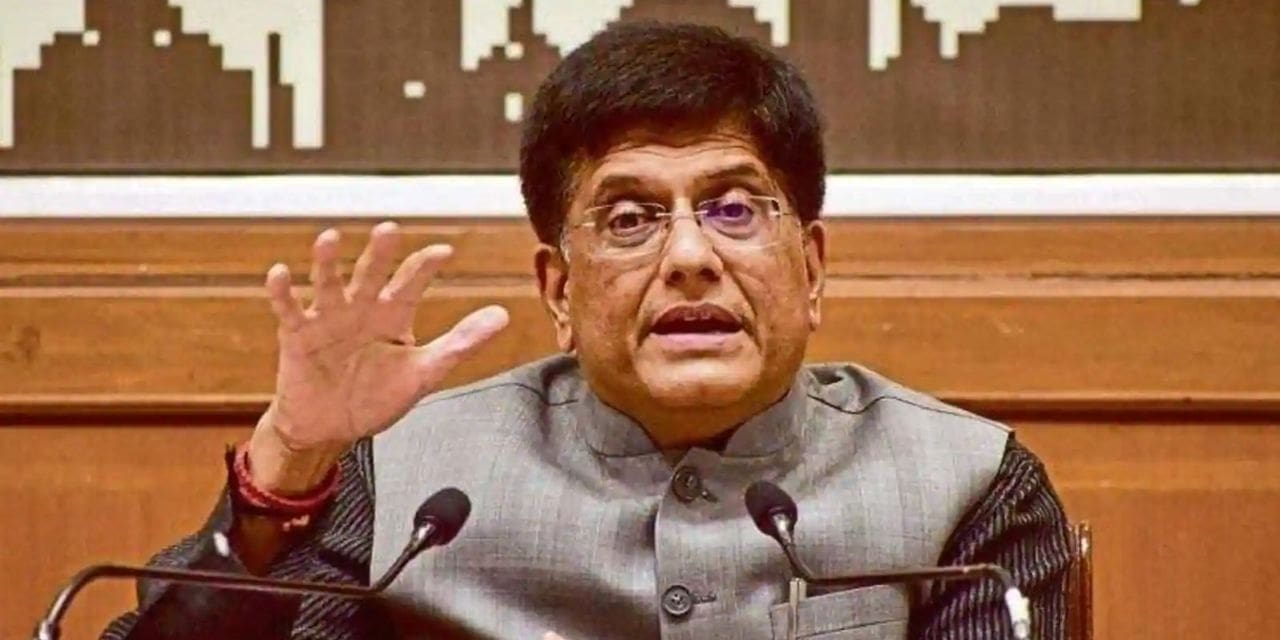Goyal cited the scenario of the FTA negotiations with the United Kingdom, saying that the country had a 9% levy on various commodities and that if that disappears, it will help the industry.
India will seek to achieve $100 billion in textile exports by 2030, according to Piyush Goyal, minister of commerce, industry, and textiles, because there are so many opportunities in the market.
Goyal’s remarks are made against the backdrop of sluggish textile export shipments during the past quarter despite recessionary trends in developed nations.
The plethora of trade agreements that India is about to negotiate will benefit the sector. India has been trying to finalise free trade agreements (FTAs) and its negotiators have insisted on duty-free access for textiles.
Goyal used the FTA talks with the UK as an example, saying that country had a 9% levy on certain commodities, and if that went away, it would help the industry.
The textile sector feels that India’s free trade agreements (FTAs) with Australia and the United Arab Emirates will be advantageous to them. In addition, India is seeking to strike trade agreements that will assist labor-intensive industries like textiles.
“Margins are crucial in the textile industry if you want to compete. Goyal stated this on the sidelines of the textile conclave in Varanasi. “Margins of 4 or 5 percent are crucial for becoming competitive in the textiles sector.
The evaluation of the 18 PM MITRA suggestions by the government is likewise far along. The plans, however, won’t be finalised until after the Parliamentary session.
PLI 2.0
According to a senior government source, the textile ministry would likely complete the second iteration of the production-linked incentive programme (PLI) for apparel, made-ups, and home textiles around the start of 2023.
The initial PLI programme concentrated on larger enterprises that dealt with the production of man-made materials and technical apparel, but the current programme will concentrate on small businesses. Likewise, it is anticipated that the new plan will have a lower investment level.
The first PLI plan had a budget of Rs 10,683 crore, and 64 applications from differaent enterprises were approved by the textiles ministry. Additionally, investments of Rs 1,500 crore had been promised.

